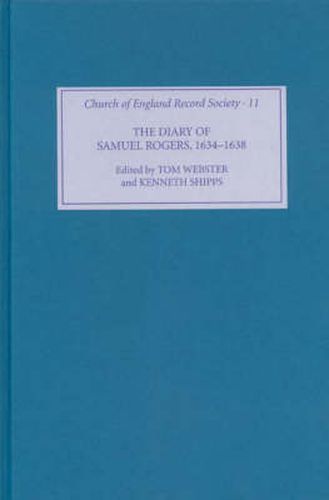Readings Newsletter
Become a Readings Member to make your shopping experience even easier.
Sign in or sign up for free!
You’re not far away from qualifying for FREE standard shipping within Australia
You’ve qualified for FREE standard shipping within Australia
The cart is loading…






Samuel Rogers began his diary just before his twenty-first birthday. He was a godly minister from godly stock - his grandfather, father and uncle were all part of the Puritan Movement - and his diary begins as Samuel finishes hiseducation at Emmanuel College, Cambridge. Samuel expresses his intense loneliness as chaplain to the unsatisfactory Dennys of Bishops Stortford, and his efforts to obtain comfort from the nearby godly community - including visitsto Wethersfield, where his father was lecturer. His isolation eases, and his diary ends, shortly after he is appointed chaplain to the family of Lady Mary de Vere, whose contacts with prominent members of the godly he details in his pages. The diary’s unrivalled view, from a day-to-day puritan perspective, of what the 1630s were like for a godly minister ‘in the battlefield’ makes it a valuable record. For Rogers, everything is of religious relevance: in addition to the social detail of the diary there is also a real and persuasive revelation of the spiritual meaning of Puritanism.
$9.00 standard shipping within Australia
FREE standard shipping within Australia for orders over $100.00
Express & International shipping calculated at checkout
Samuel Rogers began his diary just before his twenty-first birthday. He was a godly minister from godly stock - his grandfather, father and uncle were all part of the Puritan Movement - and his diary begins as Samuel finishes hiseducation at Emmanuel College, Cambridge. Samuel expresses his intense loneliness as chaplain to the unsatisfactory Dennys of Bishops Stortford, and his efforts to obtain comfort from the nearby godly community - including visitsto Wethersfield, where his father was lecturer. His isolation eases, and his diary ends, shortly after he is appointed chaplain to the family of Lady Mary de Vere, whose contacts with prominent members of the godly he details in his pages. The diary’s unrivalled view, from a day-to-day puritan perspective, of what the 1630s were like for a godly minister ‘in the battlefield’ makes it a valuable record. For Rogers, everything is of religious relevance: in addition to the social detail of the diary there is also a real and persuasive revelation of the spiritual meaning of Puritanism.